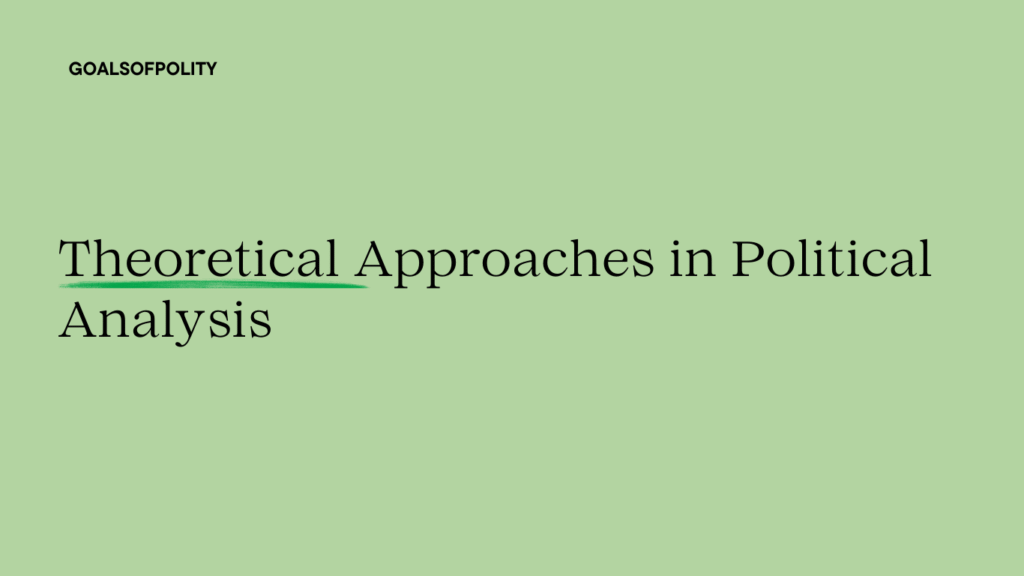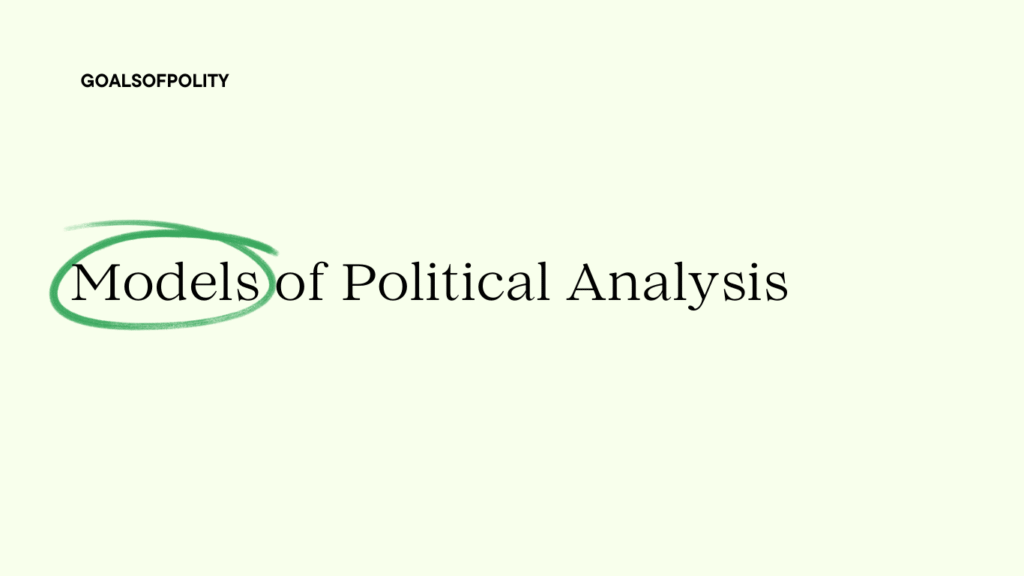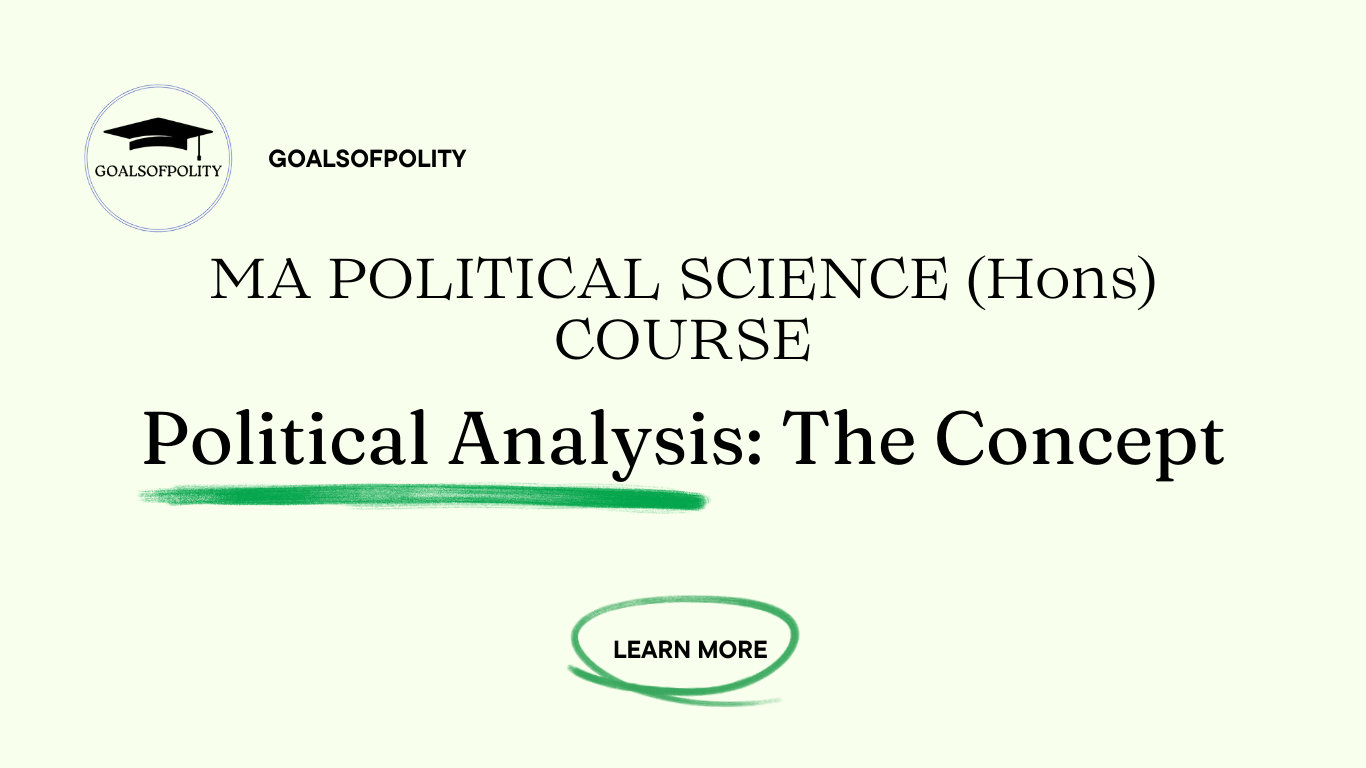Table of Contents
Introduction:
Political analysis is a systematic approach to understanding and evaluating the structures, processes, and behaviors within political systems. It includes a variety of methodologies and theoretical frameworks that aim to explain how political power is acquired, maintained, and exercised. The primary goal of political analysis is to provide information about the functioning of political institutions, the behavior of political actors, and the impact of political decisions on society.
Key Components:
1. Political Institutions:
Political institutions refer to the structures and organizations through which political power is exercised. These include governments, legislatures, courts, and administrative agencies. Political analysis examines how these institutions operate, their roles in policymaking, and their interactions with other social forces.
2. Political Behavior:
Political behavior focuses on the actions and attitudes of individuals and groups within the political system. It includes voting behavior, participation in political movements, public opinion, and the behavior of political elites. Political analysis attempts to understand the motivations behind these behaviors and their impact on the political system.
3. Power and Authority:
Power is a central concept in political analysis. It refers to the ability of individuals or groups to influence or control the actions of others. Authority, on the other hand, is the legitimate exercise of power. Political analysis explores how power and authority are distributed in society, how they are exercised, and how they influence governance and decision-making processes.
4. Political Processes:
Political processes refer to the mechanisms through which political decisions are made and implemented. This includes electoral, legislative, and policy-making processes. Political analysis studies these processes to understand how political outcomes are shaped and the factors that influence them.
5. Political Ideologies:
Ideologies are sets of beliefs and values that shape political behavior and policy preferences. Political analysis examines how different ideologies influence political actors and institutions. It also explores the role of ideology in shaping public policy and political discourse.
Theoretical Approaches:

6. Behaviorism:
Behaviorism is an approach that emphasizes the empirical study of political behavior. It focuses on observable actions and attempts to measure and analyze behavior patterns within political systems. Behaviorism aims to develop generalizations and theories based on empirical data.
7. Systems Theory:
Systems theory views political systems as complex and interconnected entities. It emphasizes understanding the relationships between various components of the system and how changes in one part can affect the entire system. This approach is particularly useful for analyzing the stability and adaptability of political systems.
8. Rational Choice Theory:
Rational choice theory assumes that political actors are rational individuals who make decisions based on cost-benefit analysis. This approach is used to understand decision-making processes and predict political outcomes based on actors’ preferences and incentives.
9. Structuralism:
Structuralism focuses on the underlying structures that shape political behavior and institutions. It emphasizes the importance of economic, social, and cultural factors in influencing political outcomes. Structuralism often examines how power is distributed in society and what the constraints are that shape political action.
Models of Political Analysis:

10. Elite Model:
The elite model holds that a small group of elites hold the most power in society and make decisions that shape political outcomes. This model suggests that political power is concentrated in the hands of a few people, often at the expense of broad democratic participation.
11. Pluralist Model:
The pluralist model argues that power is dispersed among various interest groups that compete for influence in the political system. This model emphasizes the role of interest groups, lobbying, and public opinion in shaping political outcomes.
12. Marxist Model:
The Marxist model views political analysis through the lens of class struggle. It argues that political institutions and processes are shaped by economic structures and the interests of the ruling class. This model emphasizes the role of economic power in determining political outcomes.
13. Institutional Model:
The institutional model focuses on the role of formal institutions in shaping political behavior and outcomes. It examines how the rules, norms, and structures of institutions influence decision-making processes and the distribution of power.
Conclusion:
Political analysis is an important tool for understanding the complexities of political systems. By employing various theories and models, political analysts can provide insights into the functioning of political institutions, the behavior of political actors, and the impact of political decisions on society. Understanding political analysis helps develop a more nuanced and informed view of the dynamics of power and governance in modern societies.
FAQs:
1. What is political analysis?
Political analysis is the systematic study of political phenomena, including power dynamics, institutional roles, and the behavior of individuals and groups in the political arena.
2. Why is political analysis important?
It helps understand governance, shape public policies, resolve conflicts, and educate citizens about political processes.
3. What are the types of political analysis?
Institutional analysis, policy analysis, behavioral analysis, historical analysis, and critical analysis.
4. How is political analysis related to other disciplines?
It integrates insights from sociology, history, economics, and psychology to provide a historical view of political phenomena.
5. What are the challenges in political analysis?
The major challenges include complexity, subjectivity, evolving political context, and data limitations.
6. Can political analytics predict future political events?
Although it can identify trends and patterns, predicting specific events is challenging due to the dynamic and uncertain nature of politics.

